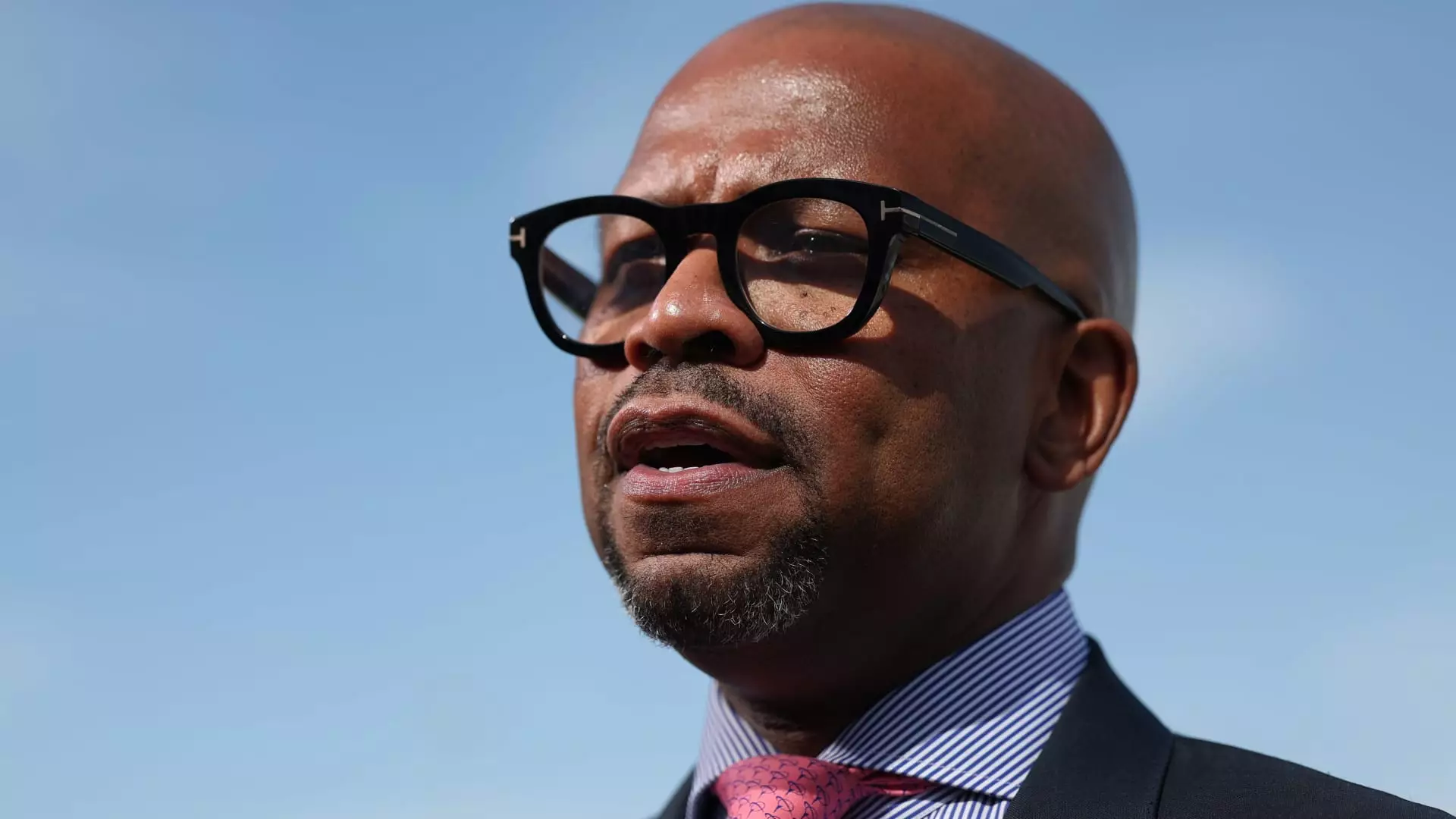Boeing, an aerospace giant known for its expansive portfolio in defense, space, and commercial aviation, has been through turbulent waters in recent years. The announcement of Ted Colbert’s departure from his role as head of Boeing’s defense unit marks a pivotal shift in leadership. This decision, made by CEO Kelly Ortberg, is not just about individual performance but points to larger systemic issues within the organization. Colbert’s exit comes at a time when the company is facing critical scrutiny over its operational efficiency and reliability.
Taking the reins as CEO in early August, Ortberg’s swift move to replace Colbert signifies more than a change in personnel; it underscores a commitment to overhaul Boeing’s strategic direction. As he stated in a memo to employees, Ortberg’s administration is concentrating on rebuilding trust with customers, a task that is undoubtedly daunting given the ongoing challenges facing the defense unit. The emphasis on collaboration to enhance performance suggests a recognition of the collective responsibility that lies within the organization to address systemic inefficiencies.
Boeing’s defense, space, and security division accounted for nearly 40% of the company’s revenue in the first half of the fiscal year. This substantial contribution underscores the financial significance of this sector to Boeing’s overall health. However, a series of production snags and cost overruns raise serious concerns about the viability of this revenue stream, which is crucial for meeting the financial expectations of shareholders and stakeholders alike. The inherited difficulties from Colbert’s leadership, most notably surrounding the troubled production of new 747 aircraft for the Air Force One program, necessitate immediate corrective measures.
Colbert’s successor, Chief Operating Officer Steve Parker, will have to navigate these tumultuous waters until a permanent replacement is appointed. The immediate challenges include rectifying production delays and restoring confidence in various high-profile projects, including the Starliner mission to the International Space Station, which recently returned without astronauts due to operational setbacks. As the industry shifts towards a more competitive landscape, the expectation for Boeing’s defense unit is not just to recover but to innovate and lead.
The departure of a high-level executive rarely occurs in a vacuum. In Boeing’s case, it reveals the intersection of leadership dynamics, operational performance, and market expectations. As Ortiz embarks on this journey to revitalize the brand’s reputation, it will be vital for the new leadership to adopt a transparent and accountable approach. Moreover, the decision reflects a growing urgency within the aerospace sector to not only deliver on commitments but to cultivate an adaptive culture that can respond effectively to ever-evolving demands in defense and space exploration.
Boeing’s recent executive shift signifies a critical juncture for the organization. The path forward will require not just strategic adjustments, but a renewed commitment to quality and accountability to restore trust among its clientele and ensure long-term sustainability.

